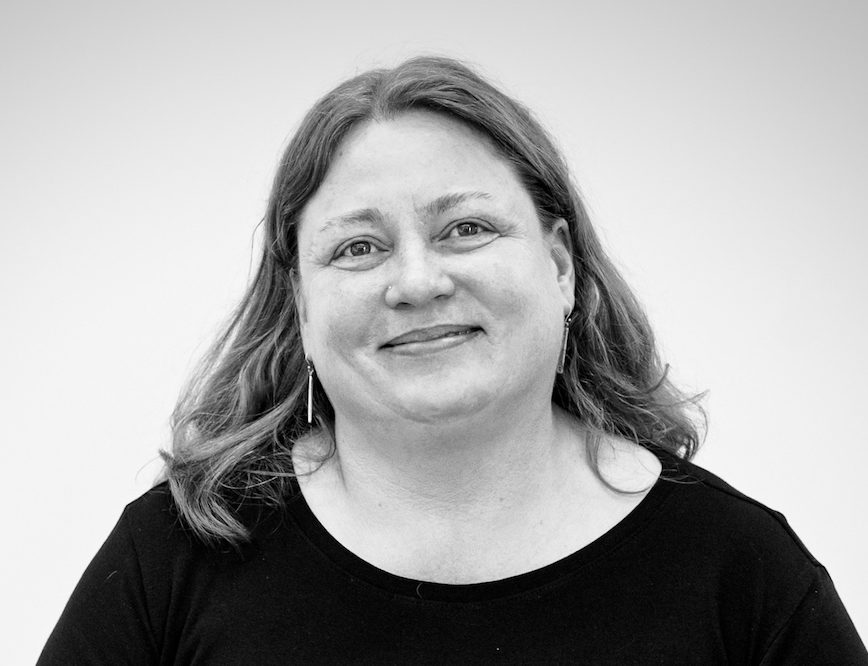Featured, Roddenberry Fellowship
Adrienne Evans
Executive Director for United Vision for Idaho
2020 Roddenberry Fellow
As we approach the upcoming election, we have to ask ourselves, how in the world does forty-some percent of the population continue to support an administration that is literally responsible for killing them?
The Republican Party of today is entirely focused on a strategy to amass historic levels of wealth and power, policies are merely tactics to advance that vision. It is important to note that the GOP literally opted not to produce a policy platform, instead hinging their success to a test of loyalty among their supporters.
Meanwhile, Democrats and the progressive left tend to anchor strategy to policies thinking that with the right social policies people will identify with the party or the movement. In stark difference, the opposition seeks identity alignment first, then the trust to make policy decisions on behalf of their supporters. Part of the allegiance that the right enjoys has everything to do with how challenges to the group they identify with are perceived – full stop. Allegiance is everything and glaringly absent is a critique of the policies they espouse or the tactics they deploy.
Of course, there are significant delineations and distinctions that are embedded in the two divergent world-views. The problem is that up against unprecedented accumulation of power, wealth, and control of the institutions of government, social justice advocates and movement leaders have had to piecemeal a bold vision while fighting to advance the top tier issues. A vast many of these policies challenge the very system intent on preserving the status quo. They are hard, noble, and important fights. But, amidst the Goliath obstacles, we oftentimes act in haste to bend the arc of justice as quickly as possible so we can turn our attention to moving the next mountain.
The past three and a half excruciating years have shown us not only the impermanence of hard-fought and won policies but of our entire democratic system. Time and time again, Democrats and social movements fail to advance a progressive vision for the country. Constantly struggling to win short-term policy gains, we often and falsely think that when someone aligns on a tenant of our platform, they are uniformly “with us.” But, unless we make the connections between the issues, we present a very narrow view of the movement we are asking people to identify with.
By surrendering our long-term vision for bold and sweeping systemic change for any one policy, we act defensively. The defense game is important, critical even, but without an offensive strategy, the game is rarely won. In what is clearly a volatile and dangerous political time, social movements and leaders must have the courage to scrutinize our own methods. As we stand at a moment that will determine the existential fate of our country, the choices should be crystal clear, but as even the most optimistic polls show our people and our democracy are not winning.
Ask any Republican in Idaho, what does your party believe in and the answer will likely be “God and Country.” Ask the same question of Democrats and it goes something like, “Well, I support the ACA, but I think Medicare for All is going too far, I believe every woman deserves the right to choose, I think that race is a critical issue, but I’m not sure how I feel about reparations, the climate crisis is real and we should trust science….”
By sacrificing sweeping systemic change for the more expedient policy advancements that we hope will continue to build upon one another and edge us closer to real justice, we are trading the deep relational organizing that is necessary to cement a vision of what our movement is in the hearts and minds of people across this country.
We correctly worry that we have not built a base that is capable of moving mountains, so we settle for what is obtainable that will save some of us. We’ve forgotten that what moves people is a vision for what can be. And until we recognize that our lives and our issues are inextricably linked, and our futures bound by a bold agenda of all that is possible, we are not building a social justice movement to meet the demands of today.
Our country is in crisis on every level from a long-overdue racial reckoning to a global pandemic to the future of our democracy that hangs by a thread. But, like any crisis, there are also moments of opportunity. Our moment is to provide a vision of what is possible, but to do this we must thread our policies together to create meaning and inspire. This will require us to be strategic, to think and act more broadly and expand our notion of winning; it will never be enough to win one campaign or one policy, or an election. Our work must instead be dedicated to winning a comprehensive, and holistic view of what health really means in our society.
From cradle to grave everyone needs healthcare. Regardless of political affiliation or ideological persuasion, most people agree that healthcare is a priority. It is important to remember that while Obama and Biden used all their political capital to advance the Affordable Care Act, which provided healthcare to millions of Americans and was unequivocally a giant step forward, it was also largely the policy crafting of moderate Republicans that was finally enacted. Stymied by Republican control of the House and Senate, a decade later the fight for comprehensive healthcare persists. The Trump administration and Senator Mitch McConnell have gone to great lengths to undermine the ACA and strip healthcare away from millions of Americans. Their attempts are both ruthless and undeterred despite the relentless advocacy of organizations who fight day in and day out for the real care all people deserve. That fight rages within our own movement too as Democrats are split on keeping what we have or fighting for what we never got.
If there is any silver lining it is that the virus has provided a universal opportunity to engage people on their most basic needs, fears, and core values. Healthcare is the on-ramp for millions of people who are struggling, worried, and insecure to engage more fully in the progressive movement. However, if we relegate healthcare simply to coverage and access to
medical care, we have missed a critical moment in building a powerful long-term, progressive movement.
We need to have a different conversation in this country about what real health really means and unite people across this country around a different vision of what the future could hold. Real health means our physical and mental wellbeing, it means the health of the air we breathe and the water we drink, it means earning fair pay for hard work, it means having food on the table and a roof overhead, it means systems that protect our wellbeing and provides opportunities to live with dignity, free from harm and the threat of it, it means investing in our communities and our people, it means ending violence perpetrated by our judicial and legal systems, it means ensuring that everyone’s voice counts; it means the health of our democracy.
It would behoove us to remember that policies change, those who introduce them, shape them, and vote on them change. We could win the election, but lose the war, if we don’t orient differently.
***
United Vision for Idaho (UVI) was founded in 1994 with a values proposition: understanding that we couldn’t afford to just fight for single issues or have one more group vying against the other for limited resources. Under Adrienne Evans’ leadership, UVI has walked their talk with a deep commitment to conversation across differences to uncover
common ground. As part of the People’s Action network, UVI’s work has influenced the national rural equity agenda and the conversation model being adopted by other affiliates. (Read more about this deep canvassing approach as applied in Michigan, North Carolina, and Pennsylvania.) Adrienne has taken this common-ground lens even further through participating in the first transnational cohort of Western States Center’s Leadership Initiative Combating Antisemitism. Traveling with leaders from a broad range of other sectors to Washington, D.C., Poland, and Israel/Palestine enabled her to share the perspectives and challenges of rural Americans and in turn, bring lessons back lessons to Idaho from others fighting hate violence, and authoritarianism.



